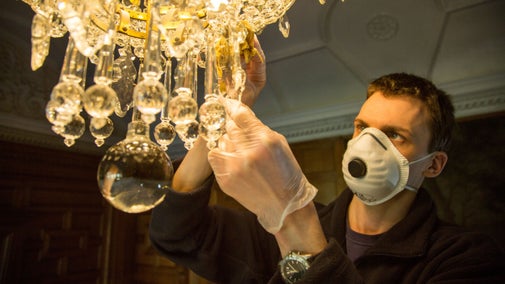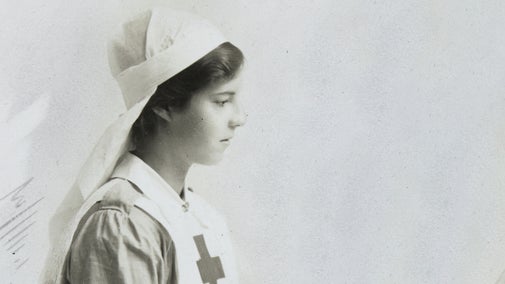
Start your journey of discovery
Delve into history, get tips from our experts, learn a new skill and go behind the scenes of your favourite places.

Find out more about people from the past, discover remarkable art and collections and brush up on your knowledge of architecture and gardens.
Take a closer look at some of the Easter objects in our collections. From a religious holy day to a time for family traditions, discover the origins of Easter and the symbolic egg.

In England, several sites of lost medieval villages can be found at National Trust places. Learn more about these abandoned villages.

Learn how to clean your house with tips and tricks from the National Trust experts who maintain and conserve historic houses and their contents.

Discover the different eras of British history through the archaeological artefacts and sites in our care. From stone circles in the Prehistoric Era to military remains of the 20th century, learn more about our ancestors and Britain's past.

Delve into one of the world's greatest collections of art and historical objects. From paintings to sculptures, there’s something for every art lover to discover.
Spring's promise of new beginnings has been an inspiration to artists and designers for centuries. Discover spring through some of its most evocative depictions in the collections and objects we care for.

Learn about some of the misleading objects, paintings and architectural features in the historic houses we look after, and discover the truth behind these optical illusions.

Masterpieces by Velázquez, Rembrandt, Hieronymus Bosch and El Greco can be seen in the collections at the properties in our care across the UK.

Learn how innovations in country house communication technology, from sprung bells to early telephones, transformed the ways servants could be called upon.

Read the stories of people from history and learn about their connections to the historic places in our care, from Beatrix Potter to the Beatles.
Learn about the remarkable women in history linked to the places in our care, from the political player who helped make Charles II king, to the archaeologist who discovered a 7th-century Saxon ship burial.

Discover the legacies of women pioneers in gardening, from Edith, Lady Londonderry’s rare plants and symbolism, to Kitty Lloyd Jones, one of the first women to train as a professional horticulturalist.

The stories of women’s roles are less well known than soldiers’ tales from the trenches, but they all played a vital role in the First World War.

Read up on architecture with in-depth articles about architectural styles, interior design through history and architectural structures.
Learn how Palladianism combined classically symmetrical exteriors with lavish interiors and went on to gain huge popularity with renowned architects in England in the 18th century.

Dovecotes were built by wealthy and aristocratic families from the Norman period onwards and doves were kept for both food, feathers and as status symbols.

Find out from our team of building surveyors how you can keep your own ‘stately home’ maintained to a National Trust standard this year.

Discover the history of the natural landscapes around you. From glasshouses to sunken lanes, understand more about how these gardens and green spaces were formed.
Discover the history behind the daffodil, including how it came to be one of the UK's favourite flowers, where it came from and how to classify its many varieties.

Discover the evolution in garden buildings, from exclusive hothouses for rare new finds to the cornerstones of every garden today.

Open space campaigners sought to preserve countryside for recreation. Discover the history of the movement and how it inspired our work.


Delve into history, get tips from our experts, learn a new skill and go behind the scenes of your favourite places.